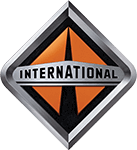Southwest International Celebrates 38 Years
This week, we are celebrating 38 years of Southwest International Trucks. This company has withstood a plethora of obstacles, economic difficulties, a pandemic, but has continued to persevere and prove ourselves as a force to be reckoned with within commercial trucking. We believe it’s about more than just selling trucks - we build relationships with our customers. To celebrate our 38th year, we have sat down with an employee who has been here since the beginning, Dennis Bell, to get his insight on his experience working with Southwest International.
Dennis has been a hard-working and dedicated SWIT employee since the beginning, working from sun up to sun down to ensure that the job gets done. Dennis began his career at Southwest International following his time with International Harvester. When Harvester made the change to the dealership model, Dennis made his way to Southwest International back in 1982. Dennis is known as an early bird around here, typically arriving to work around 3:30 am to ensure he gets the job done. When asked about the changes he has seen over the last 38 years, he said “Southwest has done a lot of expanding, but has always been a great place to work.” We take pride in employing dedicated staff and appreciate Dennis’s hard work all these years.
This throwback photo shown is from Southwest International's 20-Year celebration dinner. There are many familiar faces featured who still work for Southwest.

Here is a brief history of Southwest International:
International begins in the early 1830s with Cyrus McCormick. McCormick invented the mechanical reaper, revolutionizing farming of the time. A patent was awarded in 1834, followed by major growth throughout the rest of the 19th century. In 1902, McCormick Harvesting Machine Company, Deering Harvester Company, Plano Manufacturing Company, Champion Line and Milwaukee Harvester Company came together to form what was known as International Harvester Company.
The formation of the International Harvester Company was a revolutionary one, allowing the mechanization of farming for people across the United States. In 1907, the introduction of the two-cylinder Auto Wagon brought another vehicle to the average American farmer. These vehicles were specifically designed to go from farm to market, navigating the rough and unpaved roads to sell their crops. The Auto Wagon operated with a whopping 15 HP, along with a rear seat that converted into a truck bed, perfect for hauling crops. In 1910, the vehicle was re-branded as the IHC Motor Truck. In 1914, the company used “International” for the first time in the names.
The Auto Wagon was the precursor to other lightweight vehicles International Harvester would later manufacture, including the Scout and the Travelall. The Scout was an early sport utility vehicle, on par with the Jeeps of the time. The Travelall was created as the industry’s first six-passenger, four-door vehicle. Travelalls were offered in both two-wheel and four-wheel drives. International’s production of light-duty vehicles came to an end on May 5, 1975, so the company could focus on the commercial truck and school bus industries.
International Harvester was one of the first major companies produce medium and heavy-duty vehicles. Because of this and the wide-spread dealer network, International Harvester was selected to provide trucks for the U.S. military during World War I. During the war, International also manufactured machine gun carts and wagons. With the beginning of the Second World War, International Harvester again immediately changed production to assist in the efforts. IHC manufactured trucks, half trucks, torpedoes, and many other military needs. International vehicles continue to be one of the most used by the U.S. military.
Following the war, International transitioned back into commercial and highway manufacturing, re-introducing their cab-forward and cab-over-engine highway trucks. These were the first heavy-duty truck to include a single piece, wrap-around windshield. The Emeryville model was an extremely popular cab-over model that was the best-selling truck in American for four years straight in the 1960s.
Some things you may not have known about International Trucks are their involvement in commercial and residential refrigerator manufacturing. This sector of business was short-lived for IHC, though successful while it lasted. The manufacturing facility was located in Evansville, Indiana, and was sold to the new competitor of the time, Whirlpool-Seeger.
The 1970s came with new innovation and unexpected decline. Much of the new models, including the PayStar, LoadStar, and CargoStar, were manufactured to replace many of the 1960s models and were continued until the S-Series replaced those as well. During the 1980s, the economic conditions and labor issues led to the ultimate demise of the International Harvester Company. Navistar International has allowed the company and the trucks to live on and continue the legacy. The movement Navistar made toward the dealership model allowed Mr. Trimble to establish Southwest International, allowing the International legacy to continue today.

